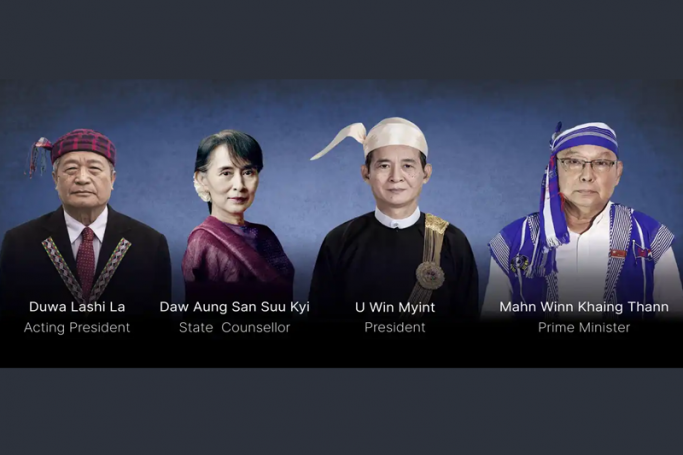The National Unity Government or NUG is on a fund-raising spree with the aim to not only financially support their administrative operations, and support those who have joined the Civil Disobedience Movement (CDM), but also to reach out to help the tens of thousands of citizens displaced by conflict.
The NUG – which prefers to be referred to as the true civilian-led government of Myanmar, rather than a “shadow government” – has a tough job on its hands. The body does not have the administrative infrastructure of the Myanmar state in its hands. Instead, the NUG can be described as an ad hoc internal and exiled body that is trying to stand in for the National League for Democracy-led civilian administration voted in by the people in the November 2020 election but largely locked up by the actions of the military in their 1 February 2021 coup.
The NUG was formed by the Committee Representing Pyidaungsu Hluttaw (CRPH), a group of elected lawmakers and members of parliament ousted in the 2021 Myanmar coup d'état. The European Parliament has recognized the NUG as the legitimate government of Myanmar. It includes representatives of the National League for Democracy, ethnic minority insurgent groups, and various minor parties.
In May 2021, the NUG announced the formation of a "People's Defense Force" or PDF, and in September the launch of a "defensive war" and nation-wide revolution against the military junta. As of September 2021, the NUG had established representative offices in the United States, United Kingdom, France, Czech Republic, Australia, and South Korea.
The PDF is a blanket term for armed opposition or resistance groups that have varying degrees of affiliation with the NUG, or operate independently.
The State Administration Council (SAC), the country's ruling military junta, has declared the NUG illegal and a terrorist organization. It recently declared that is had revoked the citizenship of a number of NUG members. The junta mouthpiece, Global New Light of Myanmar, said recently that the junta had “terminated” the citizenship of 11 individuals prominent in the struggle against the coup. These include the NUG’s spokesperson Dr Sasa, who has developed a prominent profile as the international face of the resistance movement, and three members of its shadow cabinet, namely Foreign Minister Zin Mar Aung, Human Rights Minister Aung Myo Min, and Home Minister Lwin Ko Latt.
The notice said the group had “violated the existing laws of the State and left the country illegally were found to be committing acts that could harm the interests of Myanmar.”
Prominent pro-democracy activists Min Ko Naing and Ei Thinzar Maung, and the writer Ei Pencilo also had their citizenship revoked, the notice said, adding that “similar perpetrators will be identified and prosecuted.”
The NUG says it is “preparing to speed up the revolution” as well as build a financial support infrastructure to support its activities and to help those who went on strike in support of the CDM, help military deserters, and try to help the villagers in a myriad villages – in the Bamar heartland as well as ethnic areas – who have been forced to flee their homes due to the aggressive military actions of the junta.
The tally of heavy battle scenes in Myanmar last week included the Sagaing region and the Karenni, Karen and Chin states.
According to UNHCR estimates, some 440,000 people have been newly displaced since the February 2021 coup adding to an existing 370,000 who had fled their homes previously. The agency warns that that the trend will accelerate, with more displacements in the coming weeks and months.
The NUG administration said in a recent statement that is “has been providing public services in every possible way despite the hardships. During February 2022, 186.55 million kyats-worth of humanitarian aid was provided to people in need across the country who have been suffering due to inhumane acts of military terrorists.”
What is clear at this stage of the conflict, with the growing numbers of displaced people and refugees, is that there is little or no infrastructure to provide support for people in need, particularly in the more remote areas and regions subject to heavy fighting.
The armed PDF groups appear to do what they can to support civilians caught in the crossfire but have their hands full looking after their own needs, including defensive and aggressive attacks against the Myanmar military.
NUG Prime Minister Mahn Winn Khaing Thann said in a statement in the earlier days of the conflict that “now was the best time to fight for the overthrow of the military dictatorship,” appealing to “all the people of Myanmar to continue the fight bravely with the spirit of victory in mind.”
In this battle for the soul of Myanmar, pitting resistance groups against the military, often the lives and welfare of the people are put in jeopardy.












